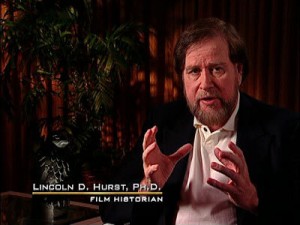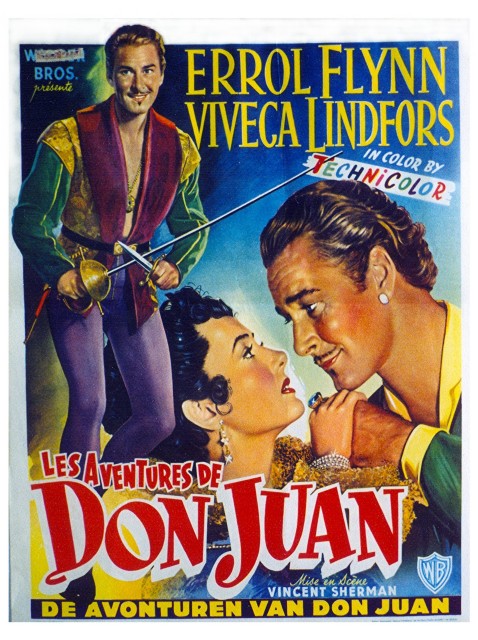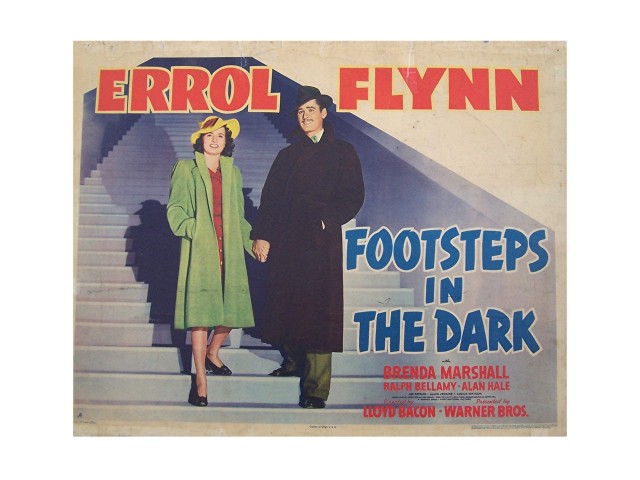Flynn with Faye Emerson outside the Flynn-Decker Art Gallery. Michael Curtiz has his back to the camera. I don't know who the other two guys are. The painting (photograph?) between Flynn and Emerson is allegedly John Decker's portrait of Mrs. Decker but I have no way of verifying that info. The unguarded look on Flynn's face tells a story of its own. His expression shows pure affection.
— Shamrock



